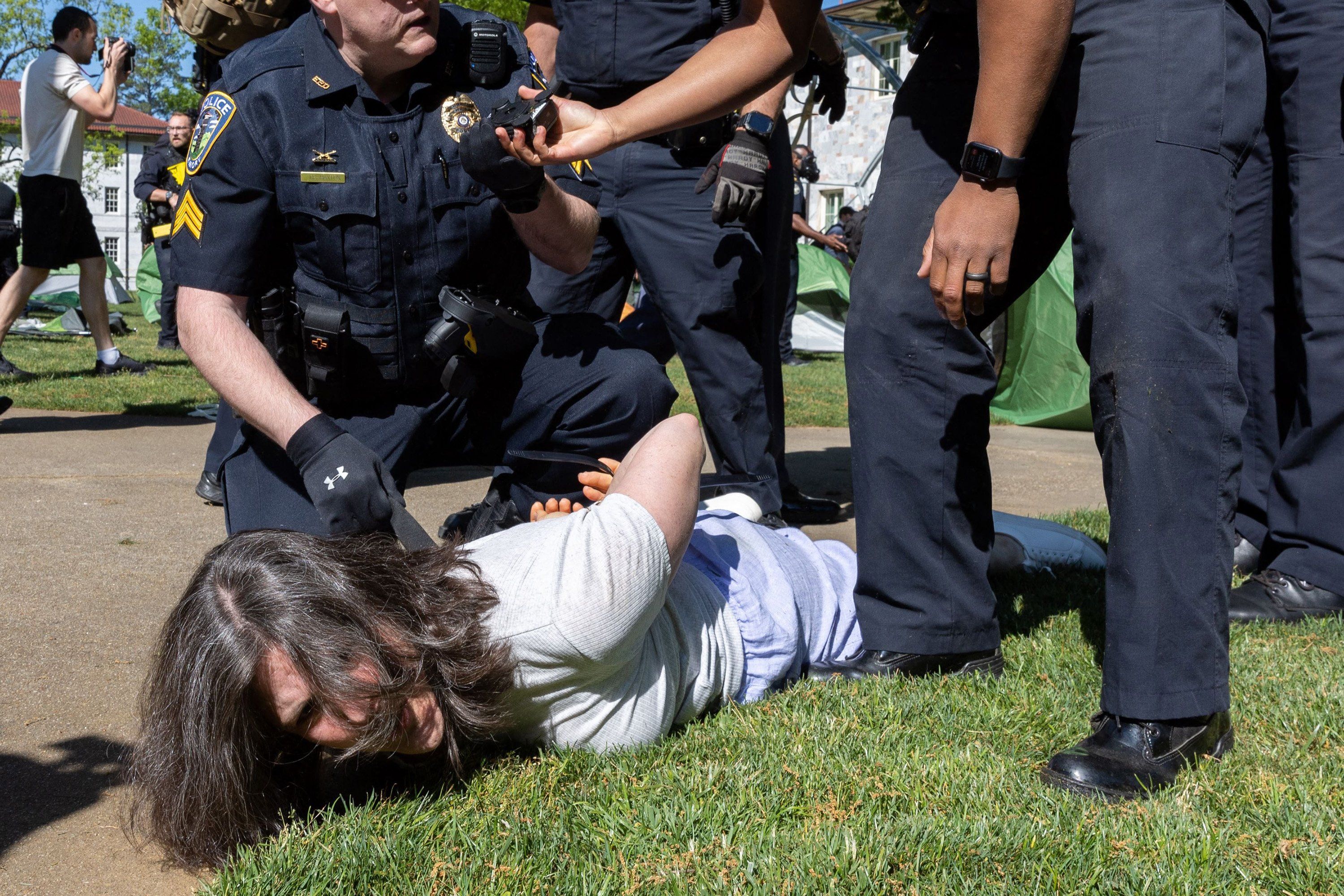Pro-Palestinian student demonstrations and encampments have popped up at dozens of US universities in recent weeks. Columbia University – where protests began – and other elite schools in the Northeast have grabbed plenty of headlines, but where they are facing the harshest pushback – and could ultimately help Republicans win back the White House – is in the South.
Last Thursday at Georgia’s Emory University, officers used tasers and pepper balls to arrest 40 peaceful protesters who had set up an encampment on the school’s football fields just hours before. Afterward, Georgia state Rep. Mike Collins, posted on X: “Not sure what y’all are doing up north, but we don’t give them the time to encamp. Tazers set to stun!”
As word got out that protesters were planning to occupy a lawn on UT Austin’s campus last Wednesday, Gov. Greg Abbott immediately called in more than 100 state troopers. Police pushed students to the ground and arrested 57 of them on trespassing charges. Then, on Monday, 100 more were detained during a second protest. All those arrested have been ordered released due to “deficiencies in probable cause,” but Abbott showed no remorse, posting “these protesters belong in jail,” on X.
That same pattern, of protests quickly resulting in mass arrests to the applause of Republicans, has been seen from the University of North Carolina at Chapel Hill to Virginia Tech. And while politicians on both sides of the aisle have criticized instances of antisemitism at the protests, the GOP is seizing on the demonstrations as symbols of leftist chaos.
As Donald Trump’s trial opened last week, a cast of right-wing provocateurs showed up outside the court in New York City to protest. But as the protests at Columbia erupted, those same Republican figures – including far-right activist Laura Loomer – headed uptown to oppose the demonstrations outside the university gates. Prominent Republicans like House Speaker Mike Johnson, Reps. Virginia Foxx of North Carolina, and Mike Lawler, of New York, joined them on campus to condemn the protests and announce their bill, the Antisemitism Awareness Act, mandating that the Education Department adopt the broad definition of antisemitism and enforce anti-discrimination laws. The bill passed in the House on Wednesday.
“Republicans are gleefully positioning themselves to be the 'law and order' party this November,” says Eurasia Group’s US Managing Director Jon Lieber. “I would expect that any continued demonstrations on liberal college campuses when schools come back in the fall will be used in service of a narrative that Democrats are the party of chaos.”
And for Democrats, the students demonstrating are a physical embodiment of the way their base has been divided by the war in Gaza. They draw attention to the fact that many young and progressive voters disapprove of Joe Biden’s continued support of Israel in a conflict that has killed tens of thousands of Palestinians.
